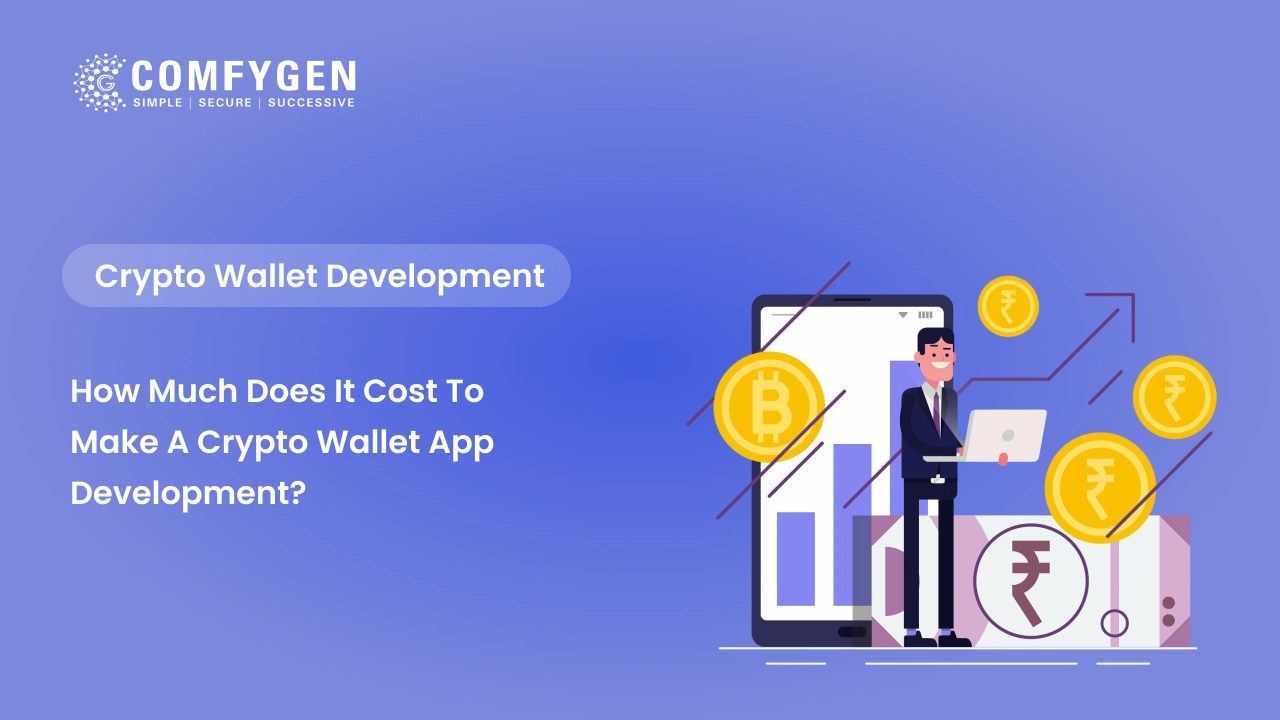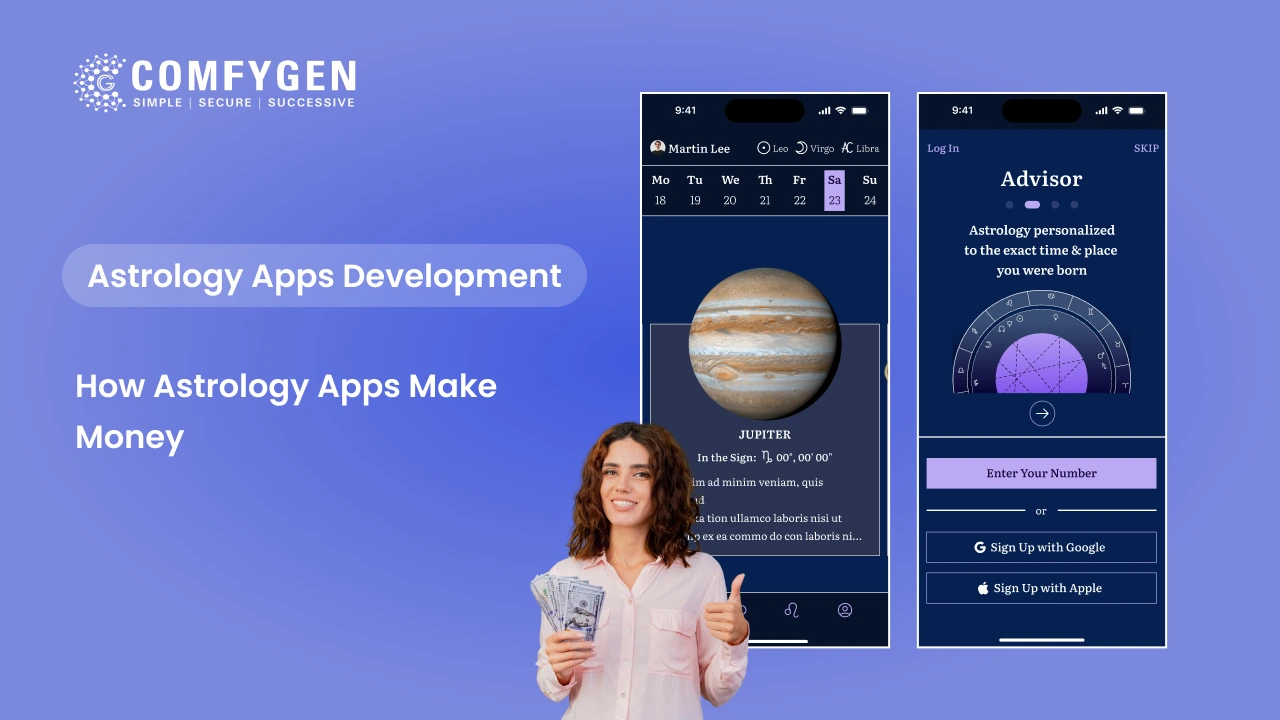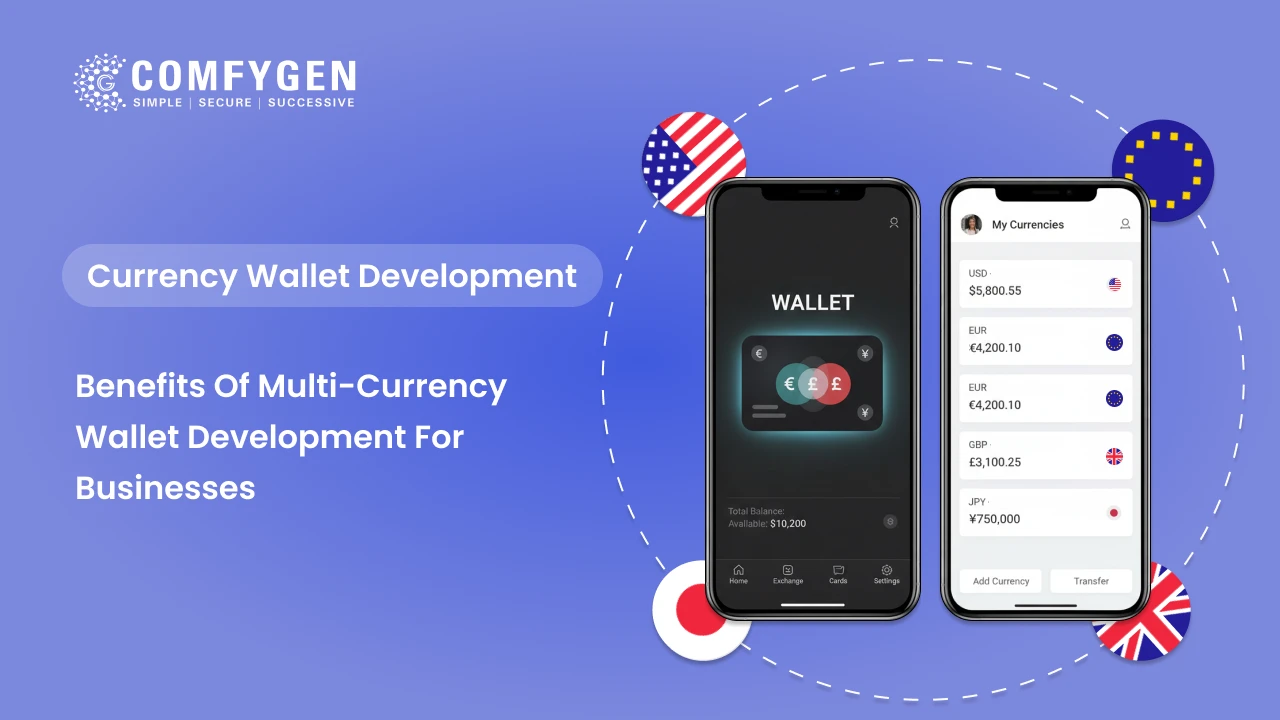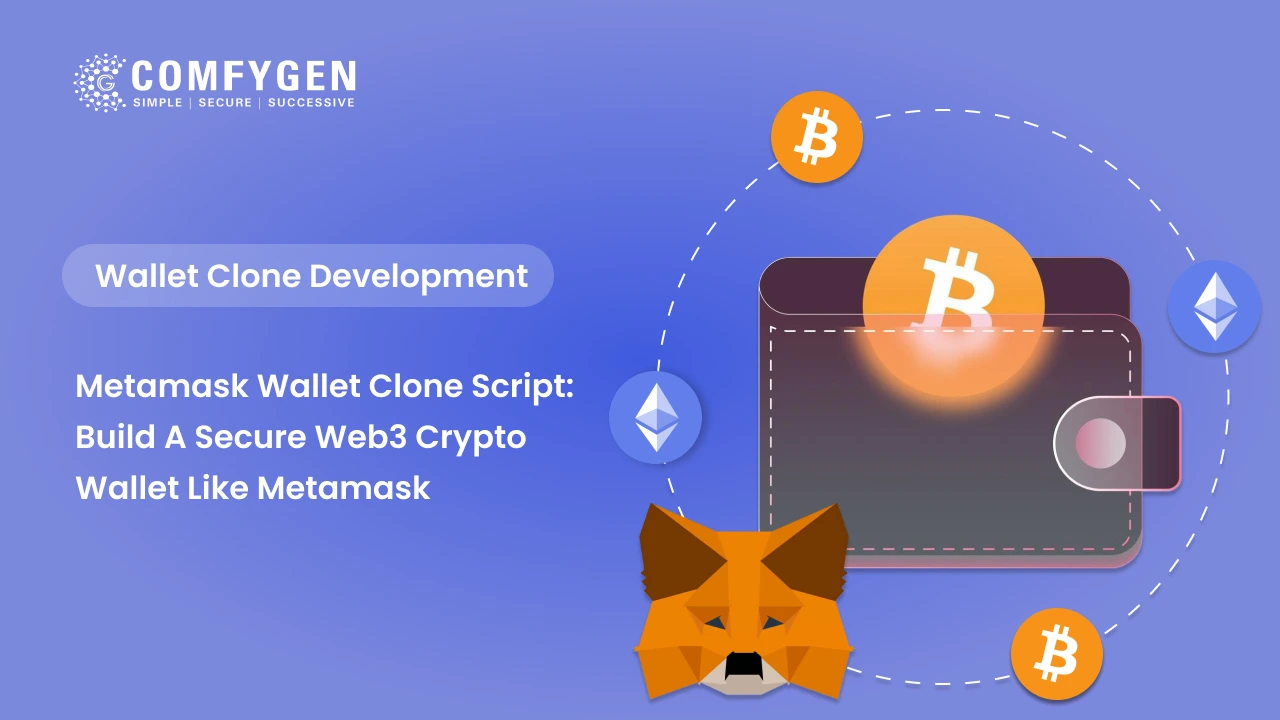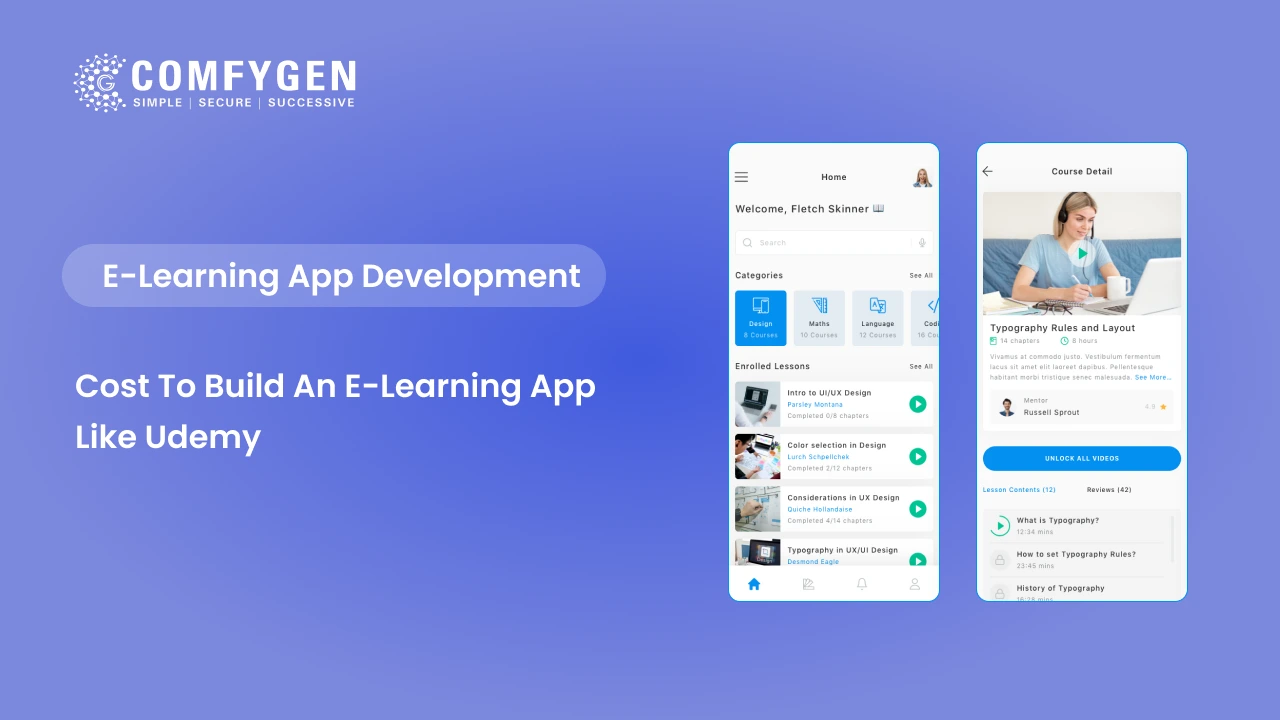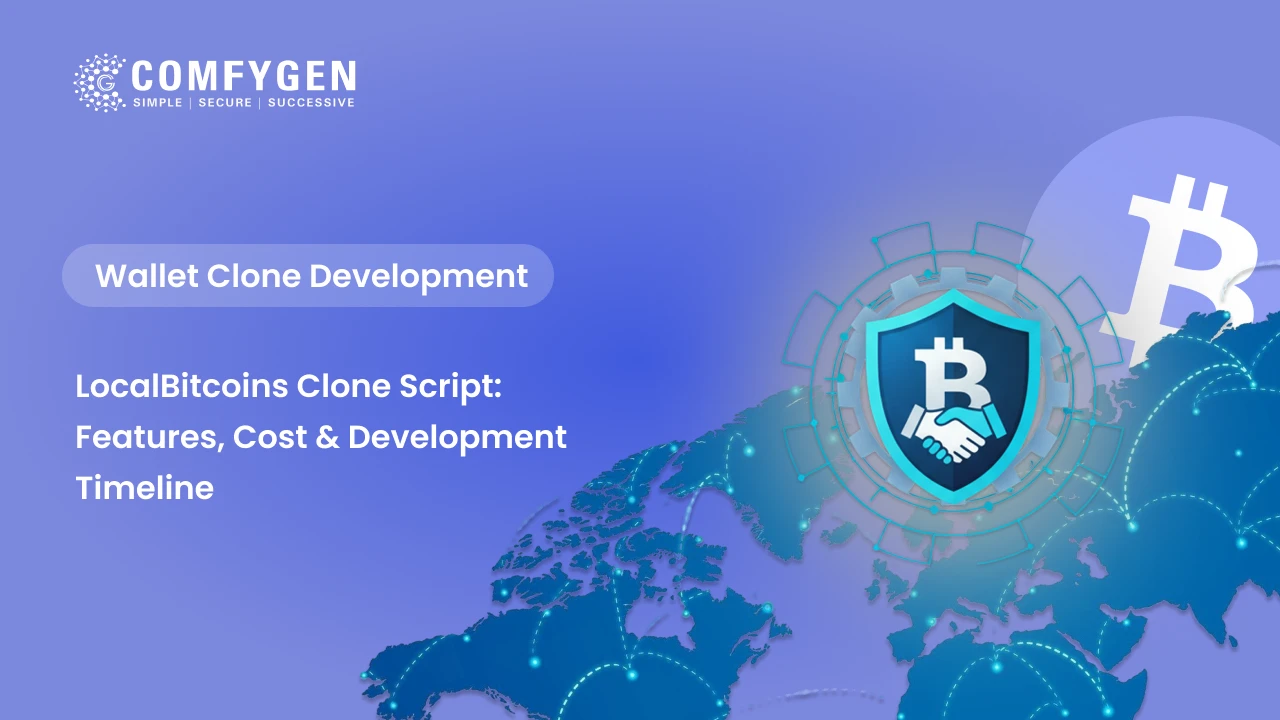How Much Does It Cost to Make a Crypto Wallet App Development?
In today’s digital era, crypto wallets are the backbone of cryptocurrency storage, trading, and transactions. With the rapid adoption of Bitcoin, Ethereum, and altcoins, the demand for secure and user-friendly cryptocurrency wallet development is higher than ever. A blockchain wallet app not only provides seamless access to digital assets but also ensures top-notch security, making it essential for both individuals and businesses entering the crypto space.
Startups, fintech companies, and global enterprises are adopting the development of crypto wallet apps to tap into the booming digital currency market. A key concern for businesses is the cost of developing a crypto wallet app, which can vary based on features, security layers, and blockchain integrations. For startups, building a custom crypto wallet solution offers a cost-effective way to enter a fast-growing industry. For enterprises and financial institutions, it means providing a secure platform for trading, investing, and managing cryptocurrencies. With Comfygen crypto wallet services, businesses can create advanced wallet apps that balance functionality, security, and development cost while integrating features like DeFi protocols, NFT marketplaces, and cross-border payments.
What is a Cryptocurrency?
Blockchain-based cryptocurrencies are decentralised digital currencies. The value of a coin is controlled and decentralized. These responsibilities are evenly dispersed among cryptocurrency users via the internet. Cryptocurrencies are based on blockchain technology, which enables decentralized processing and authentication of transactions.
What is a Crypto Wallet?
A crypto wallet is an application-based digital wallet that allows users to store, send, receive, and manage cryptocurrencies securely. Unlike traditional wallets that hold physical cash, a digital wallet for cryptocurrency stores private keys—unique codes that give users ownership of their blockchain assets. Without these keys, it’s impossible to access or transfer digital currencies like Bitcoin, Ethereum, or other altcoins.
There are different types of Crypto wallets, each serving unique purposes:
-
Hot Wallets – Connected to the internet, offering convenience for frequent transactions but requiring advanced security.
-
Cold Wallets – Offline wallets (hardware or paper-based), ideal for long-term storage of large crypto holdings.
-
Custodial Wallets – Managed by third parties (like exchanges), where the provider controls private keys for easier access but with less personal control.
-
Non-Custodial Wallets – Users have complete control over their private keys, ensuring maximum security and decentralization.
Factors That Affect the Crypto Wallet Development Cost
When estimating the cryptocurrency wallet development cost, it’s important to understand that pricing depends on multiple variables. Each decision, from the type of crypto wallet to the development team’s location, directly influences your budget. Below are the major blockchain wallet development factors to consider:
1. Type of Wallet
The type of crypto wallet you choose sets the foundation for cost.
-
Custodial Wallets Development requires server integration for third-party management.
-
Non-Custodial crypto Wallets give users complete control of their private keys and require stronger security layers, which increases Crypto Wallet Development Cost.
-
DeFi Wallets development integrates smart contracts and decentralized apps, adding complexity and higher development time.
-
NFT Wallets Development requires support for token standards like ERC-721 and ERC-1155, which add extra customization.
2. Features and Functionalities
The more advanced features you integrate, the higher the crypto wallet development cost.
-
Multi-currency and token support
-
Real-time price tracking and exchange integration
-
Biometric authentication and two-factor security
-
QR code scanning for quick transactions
-
Push notifications, portfolio management, and DeFi/NFT compatibility
3. Technology Stack
The blockchain platform, programming languages, and APIs you select directly affect crypto wallet development cost. Ethereum, Solana, Binance Smart Chain, and Polygon all vary in complexity. Additionally, advanced integrations like crypto payment gateways or trading features can increase the overall crypto wallet development cost.
4. Design and User Experience (UI/UX)
A smooth, user-friendly interface is vital for adoption. Creating custom UI/UX designs for a crypto wallet with responsive navigation, dashboards, and charts increases costs compared to using pre-built templates.
5. Development Team Location and Expertise
The hourly rates of developers vary worldwide:
-
India & Asia: $30 – $50/hour (cost-effective with skilled blockchain developers).
-
Eastern Europe: $50 – $100/hour.
-
USA & Western Europe: $100 – $200/hour
Essential Features of a Crypto Wallet App & Their Cost Impact
The success of a cryptocurrency wallet app depends largely on the features it offers. Each feature adds value for users but also increases the overall crypto wallet app development cost. Below are the must-have features in a crypto wallet app and how they impact pricing:
1. User Registration & Authentication
A smooth onboarding process with email, mobile number, or social login is essential for user adoption. Advanced authentication, like two-factor authentication (2FA) and biometric login, enhances security but adds to the cost of crypto wallet app development.
2. Multi-Currency & Token Integration
Modern users expect wallets that support multiple assets, from Bitcoin and Ethereum to altcoins and stablecoins. Adding multi-currency wallet app development increases complexity because of blockchain integrations, smart contracts, and token standard support (ERC-20, BEP-20, etc.).
3. Real-Time Conversion Rates & Charts
Integrating APIs for live crypto prices, conversion rates, and analytical charts boosts user engagement. However, third-party API costs and real-time data processing raise the overall project budget.
4. Security Features
Strong security is non-negotiable in crypto wallet apps. Adding features like end-to-end encryption, 2FA, private key encryption, and biometric verification ensures user trust. These features are vital but significantly influence the cost of adding security to a crypto wallet.
5. Push Notifications & Transaction History
Essential Features of a Crypto Wallet App & Their Cost Impact
The success of a cryptocurrency wallet app depends largely on the features it offers. Each feature adds value for users but also increases the overall cryptocurrency wallet development cost. Below are the must-have features in a crypto wallet and how they impact pricing:
1. User Registration & Authentication
A smooth onboarding process with email, mobile number, or social login is essential for user adoption. Advanced authentication feature like two-factor authentication (2FA) and biometric login enhances security but add to the cost of crypto wallet app development.
2. Multi-Currency & Token Integration
Modern users expect crypto wallets that support multiple assets, from Bitcoin and Ethereum to altcoins and stablecoins. Adding multi-currency crypto wallet app development increases complexity because of blockchain integrations, smart contracts, and token standard support (ERC-20, BEP-20, etc.).
3. Real-Time Conversion Rates & Charts
Integrating APIs for live cryptocurrency prices, conversion rates, and analytical charts boosts user engagement. However, third-party API Integration costs and real-time data processing raise the overall project budget.
4. Security Features
Strong security is non-negotiable in crypto wallet apps. Adding features like end-to-end encryption, 2FA, private key encryption, and biometric verification ensures user trust. These features are vital but significantly influence the cost of adding security to a crypto wallet.
5. Push Notifications & Transaction History
Push alerts notifications for transactions, market trends, and wallet activity enhance user experience. Detailed transaction history logs also improve transparency. While these are standard features, they still contribute to the development time and cost.
6. Integration with DeFi, NFT, or Exchange Platforms
Advanced wallets now go beyond simple storage. Features like DeFi integration (staking, lending, yield farming) or NFT marketplace support make the app more competitive. However, these require additional coding, blockchain protocols, and smart contract audits, which drive up expenses.
How Long Does It Take to Develop a Crypto Wallet App?
When businesses plan a budget, they often ask not just about cost but also about the time to build a crypto wallet app. The crypto wallet development timeline depends on the app’s complexity, chosen features, and the development approach (custom-built vs. white-label).
MVP (Minimum Viable Product) Timeline
If your goal is to launch quickly, an MVP version with core features like user authentication, wallet creation, sending/receiving crypto, and basic security can take 10–16 weeks. This is the fastest way to test the market while keeping development costs lower.
Full-Scale Wallet Timeline
For a feature-rich crypto wallet with multi-currency support, DeFi and NFT marketplace integrations, biometric security, real-time analytics, and exchange connectivity, the development process may extend to 6–12 months. The more advanced the features, the longer the timeline.
Conclusion
Crypto wallet development requires strategic planning around features, security, technology stack, and the right development partner. The cost of cryptocurrency wallet development can range from a simple MVP to a full-scale enterprise-grade solution with DeFi, NFT, and multi-chain integrations. Key factors like wallet type, features, design, developer expertise, and timeline directly shape your final budget.
For startups, an MVP wallet is a budget-friendly way to test the market, while enterprises can invest in advanced wallets to cater to global users. Choosing Comfygen’s AI-based crypto wallet development services ensures a secure, scalable, and user-friendly product tailored to your goals.
Also, Check Our previous Blogs that help you to know more

Mr. Saddam Husen, (CTO)
Mr. Saddam Husen, CTO at Comfygen, is a renowned Blockchain expert and IT consultant with extensive experience in blockchain development, crypto wallets, DeFi, ICOs, and smart contracts. Passionate about digital transformation, he helps businesses harness blockchain technology’s potential, driving innovation and enhancing IT infrastructure for global success.
Based on Interest
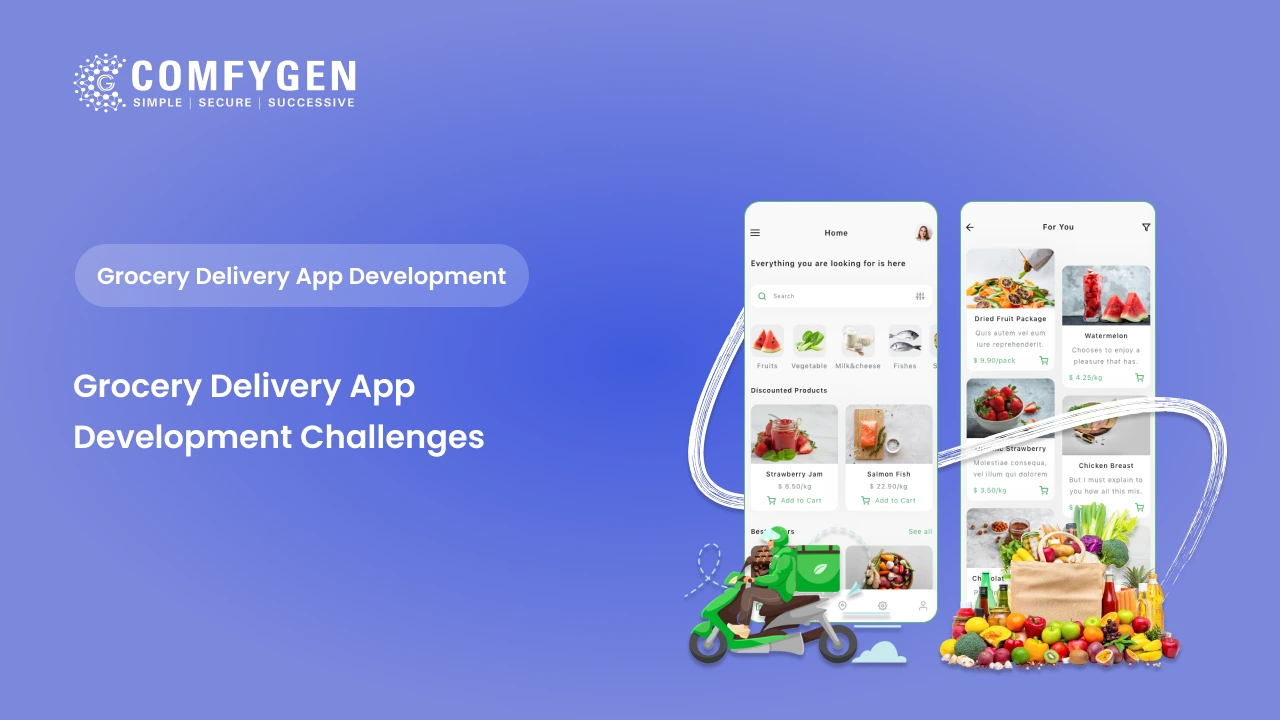
Grocery Delivery App Development Challenges: Common Problems and How to Overcome Them
In today's fast-paced digital age, the online grocery delivery industry is experiencing significant growth. With consumers preferring doorstep facilities over traditional shopping,…

How to Develop a Food Delivery App Like Just Eat
The food delivery industry has experienced exponential growth in recent years. With users preferring convenience over traditional dining, businesses are investing heavily in food delivery app development. One…

